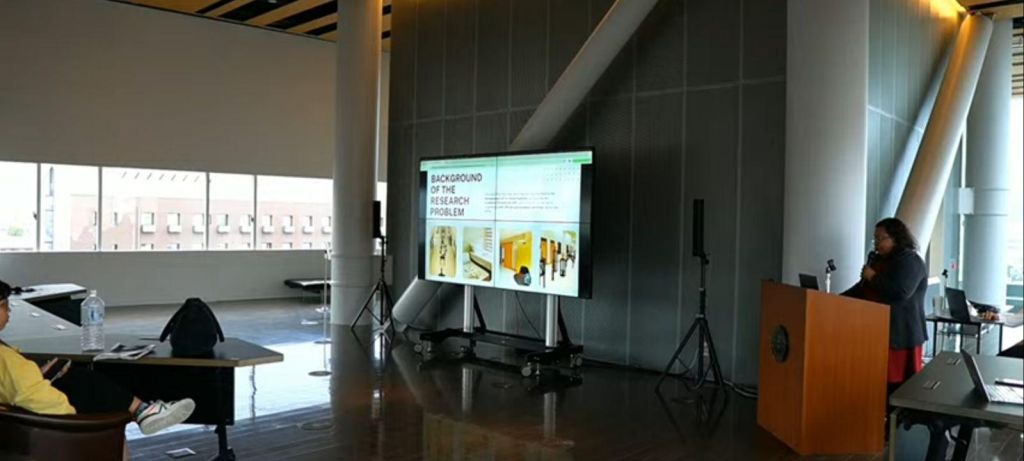Kyoto, Japan (April 13–15, 2025) — More than 300 educators, technologists, and researchers from over 25 countries came together for WILLS 2025. This three-day symposium focused on exploring how immersive technologies, such as augmented reality (AR), virtual reality (VR), and artificial intelligence (AI), are transforming education around the world.
The event provided a platform for participants to share the latest research, practical ideas, and real-world applications of immersive learning. Organized with the support of the Future Hub at Kyoto University of Foreign Studies (KUFS), the University of the Philippines Open University (UPOU), and the Mixed, Augmented, and Virtual Realities (MAVR) Research Group, the symposium emphasized how immersive tools are reshaping the ways we teach, learn, and engage with communities globally.
In line with this theme, Ms. Victoria T. Canape-Belegal, Chief Officer of the Campus Development and Maintenance Office (CDMO), presented the objectives of a project integrating a virtual tour with the Academic Residences booking system—currently under development—at WILLS 2025. Her presentation featured a video message from Ms. Cherry Flor Datoy, who provided a walkthrough of the website’s sections and functionalities. The system is the result of a research project initiated by Ms. Canape-Belegal and Ms. Nathalie Ross Boyles-Panting, a junior office assistant who manages the UPOU Academic Residences and all Rental Facilities. Their goal was to explore how a virtual facility tour integrated with an online reservation system could improve accessibility, enhance guest engagement, and boost operational efficiency.
Ms. Datoy, a Master of Information student at the Faculty of Information and Communication Studies (FICS), developed the booking system as part of her thesis. Seeing a shared vision, the CDMO partnered with her and her thesis advisor, Dr. Roberto Figueroa, Jr., Dean of FICS. While Ms. Datoy focused on the website’s development, Dr. Figueroa led the creation of the virtual tour component.
The WILLS 2025 symposium demonstrated that immersive technologies are not only shaping the future of education but also offering practical solutions that enhance everyday experiences. Projects like the Academic Residences booking system underscore how innovation can extend beyond the classroom to improve institutional services.
As immersive learning continues to evolve, events like WILLS play a vital role in fostering collaboration, sharing ideas, and driving meaningful change on a global scale.

